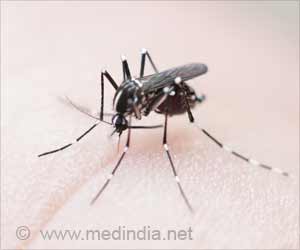A common type of bacteria could help curtail the spread of mosquito-borne diseases by making the pests more resistant to infection, according to a study published Thursday in the US journal Cell.
A common type of bacteria could help curtail the spread of mosquito-borne diseases by making the pests more resistant to infection, according to a study published Thursday in the US journal Cell.
The research built on an earlier study that found the lives of one type of disease-carrying mosquitoes could be cut in half by infecting them with a bacterium extracted from fruit flies."Together with the previously described life-shortening effects, the results suggest we might be able to have a major impact on disease," said study author Scott O'Neill of The University of Queensland.
Mosquitoes infected with the bacteria proved resistant to dengue fever and Chikungunya, an insect-borne virus. They also became poor hosts for a form of malaria parasites that infect birds.
There is no vaccine or cure for dengue fever, a painful and debilitating disease that kills more than 40,000 people and afflicts 50 million more every year. Chikungunya usually isn't fatal, but can cause symptoms similar to dengue.
Wolbachia bacteria are rampant in nature, where they are estimated to infect 60 percent of all insect species.
O'Neill and his team are working on ways to spread the infection to mosquitoes, which are responsible for transmitting human diseases such as malaria.
Advertisement
"We are currently conducting a series of experiments in contained outdoor greenhouse settings that are examining the ability of the Wolbachia infection to spread into natural mosquito populations," O'Neill said.
Advertisement
The bacteria spread from mother to larvae with the help of a developmental defect that makes uninfected females unable to reproduce with infected males.
Source-AFP
SRM











